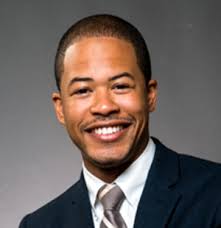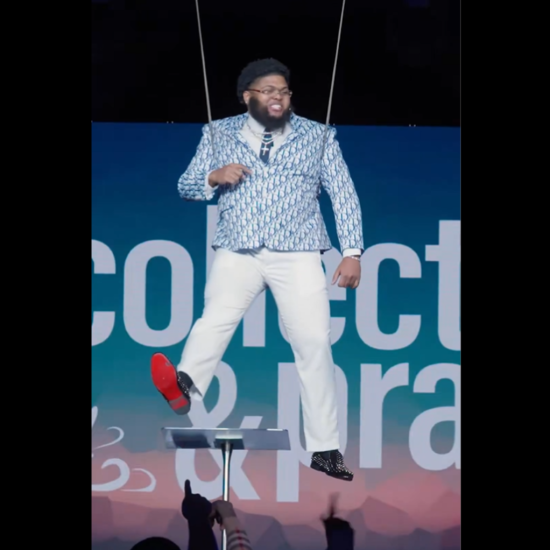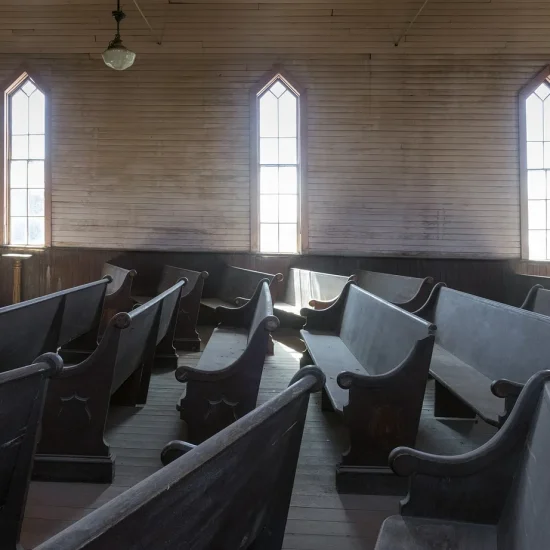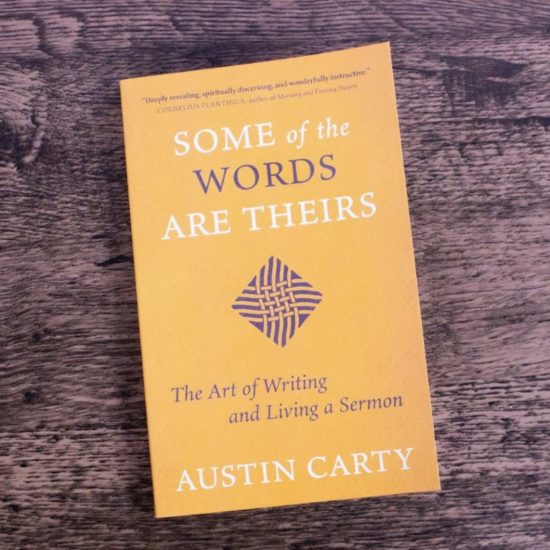
Pastors have broad job descriptions. They are preachers, teachers, counselors, administrators, organizers, and so much more. Many church members rarely interact with their pastors outside of Sunday morning worship, making it difficult to understand the dynamics of this role. “Behind the Pulpit” is a regular feature intended to pull back the curtain on the minister’s life and introduce our readers to how a diverse set of leaders go about shepherding their flocks.

Timothy Peoples
This installment features an interview conducted by email with Timothy Peoples, who is the senior minister of Emerywood Baptist Church in High Point, North Carolina. His responses have been lightly edited for clarity.
What didn’t you learn in seminary that you needed to know for church leadership?
Honestly, many things! However, the hardest was the realization that many congregants often do not care about the same things divinity schools care about: nuances of scripture, how context matters, or exegesis vs eisegesis. Congregations require pastors to obtain the highest education possible but often, when preconceived notions (from what their parents taught them or even what televangelists share) contradict what their pastors share, the preconceived notions carry more weight. So, I needed to learn how to lead a church while fighting against the falsities of the past and the emotional baggage parishioners may hold onto about biblical texts. The quick and easy answer used to be “speak the truth in love” but the age in which we live seems to treat the truth—even Gospel truth—as irrelevant.
How has your personal understanding of God changed by serving the local church?
During my first internship, the Rev. Jason Coker told me, “The Gospels are all about where Jesus was and what Jesus did while he was there.” I have carried this all through my ministry, but it is truly my motto as a senior minister. I have come to realize more and more that God does not give a dat gum about a bunch of folks sitting in walnut or oak pews at 11 a.m. every Sunday morning, even though we have decided that is God’s top priority. Liturgy is beautiful, but God continues to ask for relationships and cares about how we act in those relationships. To go beyond our comfortable cathedrals and meet people in the vulnerability, messiness, and dirtiness of life. We come from dirt, and our calling is to continue to interact with dirt, which means interacting with each other.
How have your personal religious/devotional practices been shaped and altered by being the shepherd of a flock?
Oh, that’s gone downhill. More times than not prayer seems like work than an actual devotional practice. Sometimes I see God more clearly in the practice of watching Netflix through the hope given of some fictional world that displays God’s inclusive and active love much better than the Church. I have come to rely on a lot of written prayers that I try to read daily. Those from John O’Donohue, Richard Rohr, Nadia Bolz-Weber, etc. Breathing meditations are a go-to of mine because occasionally I just do not have the words or thoughts, but I trust Romans 8:26: “Likewise the Spirit helps us in our weakness; for we do not know how to pray as we ought, but that very Spirit intercedes with sighs too deep for words.” I repeatedly tell my congregation everyone needs a therapist and I see mine every 2 weeks, as well as a spiritual director. I find this to be a devotional practice of care and acknowledgment that pastors often forget we truly need.
What does justice look like in your local context? How about love? How do you lead people towards both?
I am a Black male who has only worked in predominantly tall steeple, white churches. When beginning in ministry, other than being reconciled to Christ, I did not expect to play a role in racial reconciliation. Yet, it has become part of my call.
In almost all the congregations where I have served, I have been their first Black minister, and for a few of these churches, I have been the only minister on staff to come from a low-class socioeconomic status. I have found it to be true: racial progress cannot happen until we are in each other’s space, meeting each other face-to-face, able to see, hear, and listen to each other.
The process of reconciliation—a process in which I believe all Christians are called to participate—is a process that requires personal responsibility more than a simple wish for change. As children of God, we are to live into the Gospel story–to know God in Christ is reconciling the world and us unto God because the Holy Spirit lives in each believer. Believing, as a congregation, we are a Gospel work from God and children of grace. And leading people toward a justice and love that is often hard to comprehend or has never been experienced is difficult.
The only way I know how to do it is through relationships and hard conversations—most of the time with a strong drink. Being a church literally on Country Club Drive means we have to go outside of our areas and think, live, serve and faithfully be among all. Sadly, sometimes people are so stuck in their views, or what they have been fed through media, that it is hard to lead them toward justice and love.
What is the funniest or oddest thing that has ever happened to you in ministry (that you can share without breaking confidentiality)?
One of the funniest moments was discussing sexual stories in the Hebrew Bible during senior adult Bible study. We skipped the next few chapters of that book. Need I say more?
There was also the time when 2 women in their 80’s needed to discuss some important matters with me and scheduled a time to meet. I was very worried about what the discussion would be since I had only been at the church a few months. We sat down together and they got right to it by asking, “What does ‘puff, puff, pass mean?”
We’re coming out of a pandemic, how has that been for you and your church?
I cannot speak for the entire congregation but, in addition to the tremendous loss that came with the pandemic, it has also provided meaningful change within our congregation. We have seen a number of churches in our area who have dissolved and multiple pastors in the area are leaving ministry for other vocations because of the demands of congregations to preach the Bible—i.e. that actually means “preach what makes me comfortable.”
Through multiple visioning meetings with leadership teams and the diaconate, it is more apparent we cannot continue in the same ways. We too must evolve in an ever-evolving world. Singing “Just As I Am” after every sermon or hosting Wednesday Night Bible Study to review scriptures without actual-life application ain’t going to cut it anymore. The pandemic gave us reason and voice to push for change and allowed for most of the congregation to realize it is essential for the livelihood of the local church. As time progresses and the implementations take place, we will see what happens.






